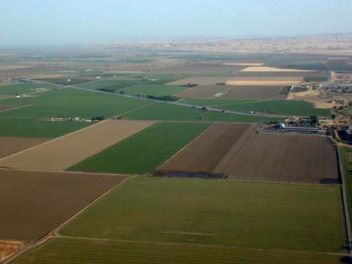Census question could increase swing seats in House, Legislature

The recent U.S. Supreme Court hearing where the justices’ conservative majority appeared prepared to accept the Trump administration’s decision to add a question about citizenship to the 2020 census form has triggered sharp criticism from California Democrats. If the question leads to millions of unauthorized immigrants not filling out forms, as the Census Bureau expects, that would lead to a significantly lower population count in the Golden State, which has the most such immigrants.
This has led to analyses predicting that California could lose one or two of its 53 House seats and, over the long term, billions of dollars in several categories of federal aid. These are divvied up based on census reports of total population. A Legislative Analyst’s Office study released in December detailed how in 1990, California had a census undercount with a similar effect.
But what has received less attention is the potential of the citizenship question to reduce the number of safe Democratic seats and to increase the number of swing seats in the House and state Legislature. Because House, Assembly and Senate seats are apportioned based on total population data from the 2010 census, turnout of voters — who have to be U.S. citizens — is often much smaller in rural agricultural areas which have a higher proportion of unauthorized immigrants, as well as in poor areas of Southern California.
Democrats much more likely to win low-turnout races
According to the official state results from November’s election, excluding races in which both candidates were from the same party, there were 21 House seats that Democrats won with fewer than 150,000 votes and only three such seats where Republicans won. In the 21st House district, Rep. T.J. Cox, D-Fresno, won with only 57,239 votes.
State Senate districts have on average about 25 percent greater total population than House districts. In November’s election, again excluding races in which both candidates were from the same party, of the 20 seats up for grabs, six were won by Democrats with fewer than 180,000 votes versus only one won by a Republican. In the 14th state Senate district, Melissa Hurtado, D-Sanger, won with just 80,942 votes.
State Assembly districts have on average half the population of state Senate districts. In November’s election, again excluding races in which both candidates were from the same party, of the 80 seats up for grabs, 22 were won by Democrats with fewer than 90,000 votes versus six won by Republicans. In the 32nd Assembly district, Rudy Salas, D-Bakersfield, won with just 39,328 votes.
With Democrats having overwhelming numerical advantages in California’s House, Senate and Assembly seats, too much can be read into statistics showing they are far more likely to win low-turnout races. Democratic candidates in affluent communities in the Bay Area, Silicon Valley and Southern California often won high-turnout races.
But the extremely low turnout districts concentrated in the Central Valley and Los Angeles County all elected Democrats. These districts are likely to change considerably after the reapportionment following the 2020 census, if the citizenship question is asked and has the effect of reducing the number of state residents who fill out census forms.
The Supreme Court is expected to release its decision in the census case in late June.
Chris Reed
Chris Reed is a regular contributor to Cal Watchdog. Reed is an editorial writer for U-T San Diego. Before joining the U-T in July 2005, he was the opinion-page columns editor and wrote the featured weekly Unspin column for The Orange County Register. Reed was on the national board of the Association of Opinion Page Editors from 2003-2005. From 2000 to 2005, Reed made more than 100 appearances as a featured news analyst on Los Angeles-area National Public Radio affiliate KPCC-FM. From 1990 to 1998, Reed was an editor, metro columnist and film critic at the Inland Valley Daily Bulletin in Ontario. Reed has a political science degree from the University of Hawaii (Hilo campus), where he edited the student newspaper, the Vulcan News, his senior year. He is on Twitter: @chrisreed99.
Related Articles
Gun groups urge Supreme Court to take up SF gun case
More than a dozen Second Amendment groups are asking the U.S. Supreme Court to take up a high-profile challenge to
Physical education settlement gives slacking CA schools a workout
Faced with an embarrassing lawsuit over physical education requirements, California schools have opted to settle with the Golden State parent spearheading
Redistricting commissars evade tough Q&A
During its press conference Friday announcing the release of redistricting maps, the Citizens Redistricting Commission evaded tough questions and refused




